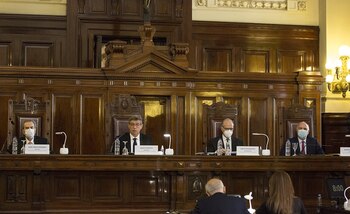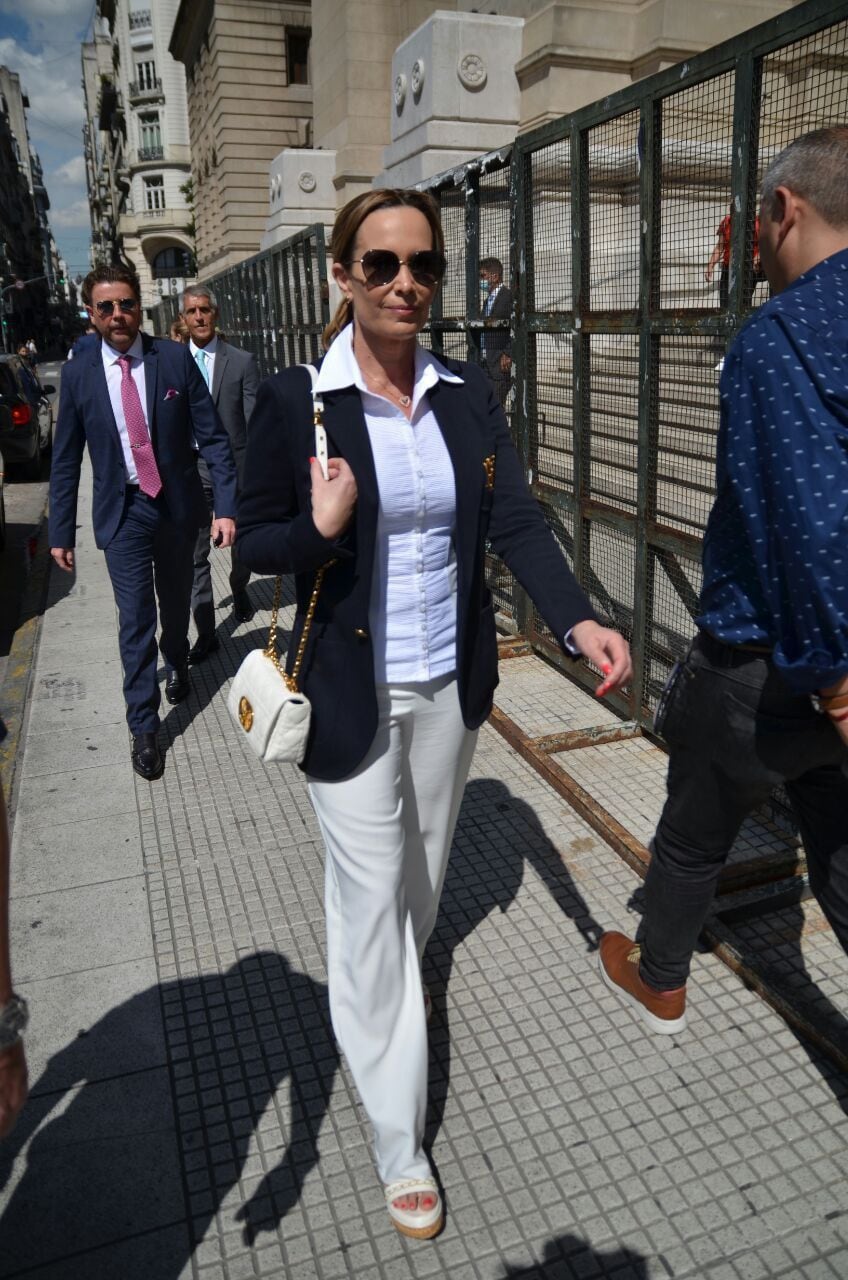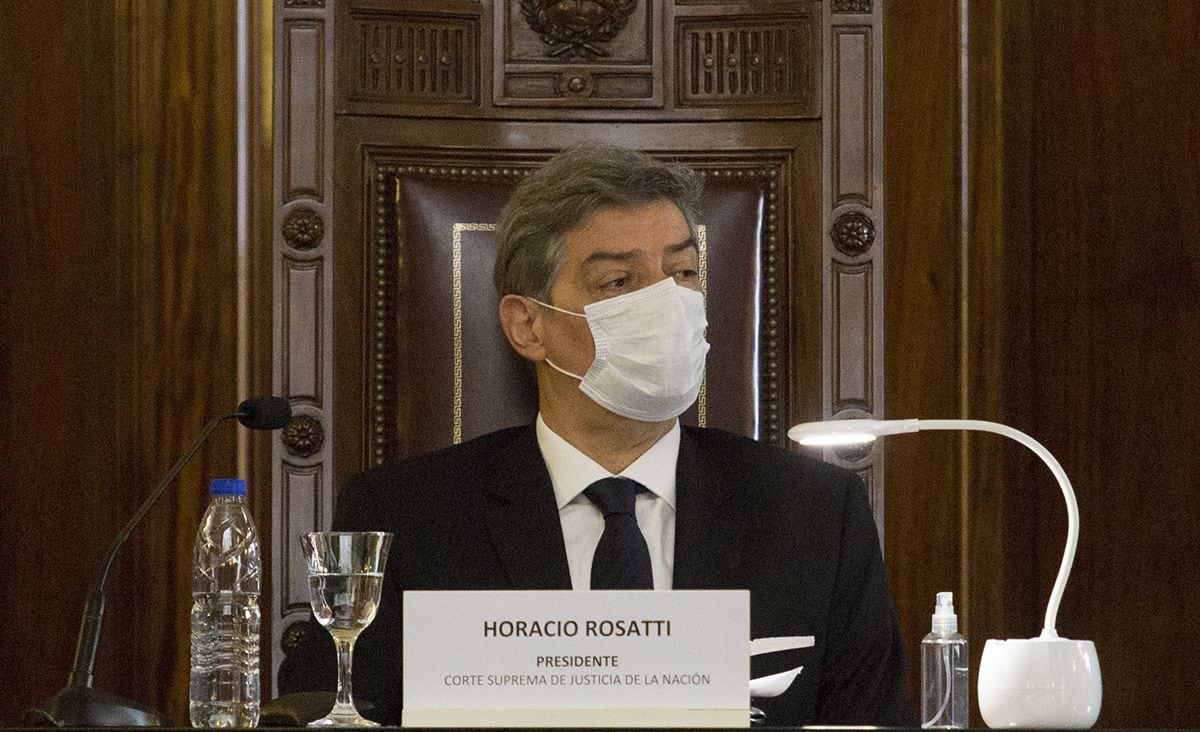
After the first day of the hearing convened by the Supreme Court of Justice in the case of Natalia Denegri against Google, the “Friends of the Court” presented their arguments regarding the dispute raised by the model and producer's claim, namely the collision between the right to be forgotten and the freedom of expression.
The case was initiated by a lawsuit promoted by Denegri in which he demanded that the Justice order the internet search engine to remove links to content from his media past in the Cóppola case. For that he invoked the so-called “right to be forgotten”. The claim was favourably received in the first instance, albeit partially. And on that occasion, Judge Hernán Pagés pointed out the restrictive criterion that the judge must take into account when resolving such issues in order not to harm a right protected by the National Constitution, such as freedom of expression. Thus, he said, “I think it prudent to appreciate that the decision about the dislinking of the links that a search engine makes between a person's name and the sites that host information about him cannot be left solely to the will of the subject concerned.”
At Thursday's hearing, the Ministers of the Supreme Court of Justice of the Nation, Horacio Rosatti, Carlos Rosenkrantz, Ricardo Lorenzetti and Juan Carlos Maqueda heard the arguments of the 12 “friends of the court” presented in the file.
In the first place, the Ombudsman of the Autonomous City of Buenos Aires, María Rosa Muiños, said that the right to be forgotten could not be applied in cases of special historical relevance, cases of corruption, involving the exercise of public office or situations of very special importance. For Muiños, the removal of content would be appropriate when the rights of other people are not put at risk. He also asked the Court to incorporate a gender perspective at the time of sentencing.
The next speaker was Carlos Laplacette representing the Association of Argentine Journalistic Entities (Adepa). Counsel highlighted the entity's concern and rejection of the resolution criteria set out in the judgments handed down in this case. He also noted a very marked difference between cases that are often cited as examples of the “right to be forgotten” and Denegri's claim. In this sense, he stated that “this is journalistic information about a public person who participated in news and entertainment programs and who is still a public person.” He added that “these differences with European cases increase in a system like the Argentine one that, for different legal and historical reasons, has made memory and collective memory a virtue and, if you like, even a right.”

He also argued that the right to be forgotten can have consequences for the exercise of freedom of expression, of the press and of information, for public debate and the effective validity of the democratic system.
Silvana Giudici's exhibition of the LED Foundation - Freedom Expression+Democracy passed along a similar lane. He argued that the blocking or removal of content that the complainant intends manifestly affects freedom of expression, since it would imply selecting in advance which content should circulate freely on the internet, which means a serious deterioration in the free flow of information. He also pointed out that information that is intended to be forgotten is in the public interest, corresponds to public persons and the right to be forgotten is an extreme exception comparable to censorship.
In the same vein, Hernán Gullco, president of the Association for Civil Rights (ADC), spoke. “The actor was a public figure at the time of the events because she had voluntarily exposed herself to the spotlight of public opinion and remains so now,” Gullco said. He added “the issue related to the so-called Cóppola case did have a public interest, which was recognized both in the first instance and in the Chamber.” The lawyer wondered if the topic was of public interest, if the information as such had it, why would the videos not have it too? “He is a public personality on a subject that has a public interest and, moreover, there is no law in the Argentine legal system that regulates the right to be forgotten,” Gullco said.
Lawyers who attended the hearing commented that the case was “poorly chosen”. All courts that chose cases to deal with the issue of the “right to be forgotten” were based on unknown persons, individuals who had a legitimate right to their privacy. However, in the case of Denegri, “it is clear that he is a public person who, moreover, exposed himself in the media and gained fame with them,” they said.

The professionals consulted agreed in pointing out the “lack of experience” of Horacio Rosatti, who as president of the highest court is the one who takes the cases. “There is a desire for personal prominence, because he chose a case that would give notoriety in the media, even though it was later difficult to pass judgment,” they added.
Lawyers also criticized Rosatti's introduction urging them to “speak out”. “It is disrespectful, especially since this has been accepted for many years in all the exhibitions in the multiple participations of the friends of the court,” they complained.
After the fourth intermission, the hearing will continue this Friday with the speech of the lawyers of Natalia Denegri, Google and the Attorney General.
KEEP READING
Últimas Noticias
Debanhi Escobar: they secured the motel where she was found lifeless in a cistern
Members of the Specialized Prosecutor's Office in Nuevo León secured the Nueva Castilla Motel as part of the investigations into the case

The oldest person in the world died at the age of 119
Kane Tanaka lived in Japan. She was born six months earlier than George Orwell, the same year that the Wright brothers first flew, and Marie Curie became the first woman to win a Nobel Prize

Macabre find in CDMX: they left a body bagged and tied in a taxi
The body was left in the back seats of the car. It was covered with black bags and tied with industrial tape
The eagles of America will face Manchester City in a duel of legends. Here are the details
The top Mexican football champion will play a match with Pep Guardiola's squad in the Lone Star Cup

Why is it good to bring dogs out to know the world when they are puppies
A so-called protection against the spread of diseases threatens the integral development of dogs




